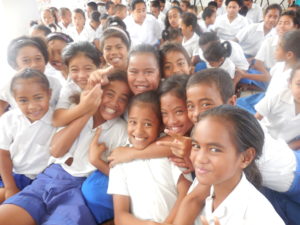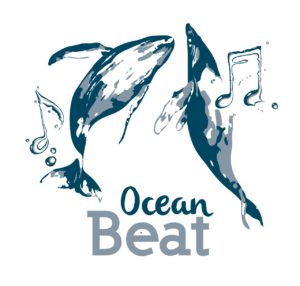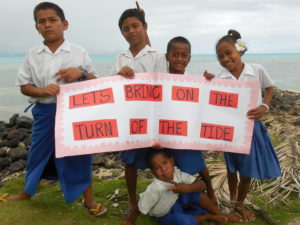Youth Environmental Corps
Turning the Tides is working towards a global youth environmental corps, under the United Nations, guided by native people. This idea is supported by scientists, youth and musicians in nine countries and will be presented to the UN in spring, 2020. Youth around the world are marching for a livable future – frustrated that these efforts are not making more of an impact on corporate and political decision makers. A youth corps does not in any way reduce the need for drastically lowered emissions, but offers an additional – and powerful – path to change by sequestering carbon through greening…
Beach Clean Ups – Spring 2015
In the spring of 2015 Turning The Tides will be joining other Juneau groups to clean up debris from Juneau’s beaches.
About Juneau Community Greenhouses
A. Mission The mission of Juneau Community Greenhouses is to demonstrate how to improve Juneau’s sustainability and food security during a period of rapid environmental change. B. Vision Ten years from now, 10% of Juneau’s 13,000 households will grow a substantial portion of their vegetables, fruit and herbs in local greenhouse structures, operating year-round, and in home gardens. C. Desired Outcomes Residents will learn what edible crops can be grown successfully in this climate. The growing season will be extended to 10 months a year or more. New crops will be introduced to the area, such as mushrooms. Permaculture principles will be demonstrated. Carbon-negative practices…
Ring of Fire 2016
RING OF FIRE Musicians, actors, scientists, Native Americans and a former U.S. Commander of the Atlantic Fleet – are brainstorming a Pacific wide concert – Ring of Fire – to take place Ocean Day – June 6, 2016 – in the middle of the Pacific Ocean – the Pacific Garbage Patch – on naval ships – and on other Pacific sites. Envisioned as a wake-up call to the importance of the ocean to the life of the planet, it features rock, tribal drumming, gospel choirs and children’s choruses – integrating singers and musicians around the Rim. The ocean is in…
What You Can Do
Single-Use Plastic Shopping Bags Let’s start with the most obvious: plastic bags. Once manufactured, recycling these bags is a great way to reduce plastic waste. However, plastics are not truly recyclable. The “recycling” process yields a lower grade, less flexible material of limited usefulness. It draws on valuable energy and produces pollution, including climate-changing gasses. A viable solution is to get canvas bags and use them. Just possessing such bags and leaving them behind – and I know some of you who do – won’t do the trick. If you keep forgetting them in your car, force yourself to walk…
OCEAN BEAT is a project of TURNING THE TIDES.
OCEAN BEAT OVERVIEW
OCEAN BEAT uses the international language of music – a language of the heart – to unite students across the world to help reverse the decline of the oceans – a deterioration that affects the life of every human, plant and animal on earth.
OCEAN BEAT is a coalition of traditional elders, modern educators, cutting edge scientists and musicians that uses the internet to link students across the world. Students learn to combine traditional wisdom with contemporary science to help heal the oceans and perform ancient chants and drumming together with pop songs and rap.
OCEAN BEAT holds a vision of thousands of students singing together in an international internet concert, celebrating the oceans and the efforts of ordinary people to help save them, and inspiring actions everyone, wherever they live, can take.
OBJECTIVES
To experience the beauty, vitality, importance and intelligence of the natural world, with a focus on oceans and their importance to the continuation of life.
To use the international language of music to bring together people across political, cultural and religious borders celebrating each other and the world around us.
To work together to help heal the ocean – remembering that wherever we are and whatever we do affects their health.
WHAT IS HAPPENING TO THE OCEANS – AND WHY SHOULD WE CARE?
Oceans are 71% of our planet and ocean plankton provide 70% of the world’s oxygen. Without the oceans, not even a cactus can live. Even if we have never seen an ocean and live thousands of miles away, whatever we do affects them. Toxins, plastics, everyday garbage – all make their way to the ocean. Everything – from the clothes we wear to the food we eat, affects ocean health – and the health of everything else! We are learning that what we throw away returns to us in food, air and water. We are truly part of a web.
National Geographic has announced results of a recent study that predicts widespread suffocation of the ocean by 2030. “Dead zones” – zones with little or no oxygen – are proliferating and the deterioration of our oxygen supply will, according to this study, be apparent within the next twelve years.
If we don’t change, we will end up where we’re going!






